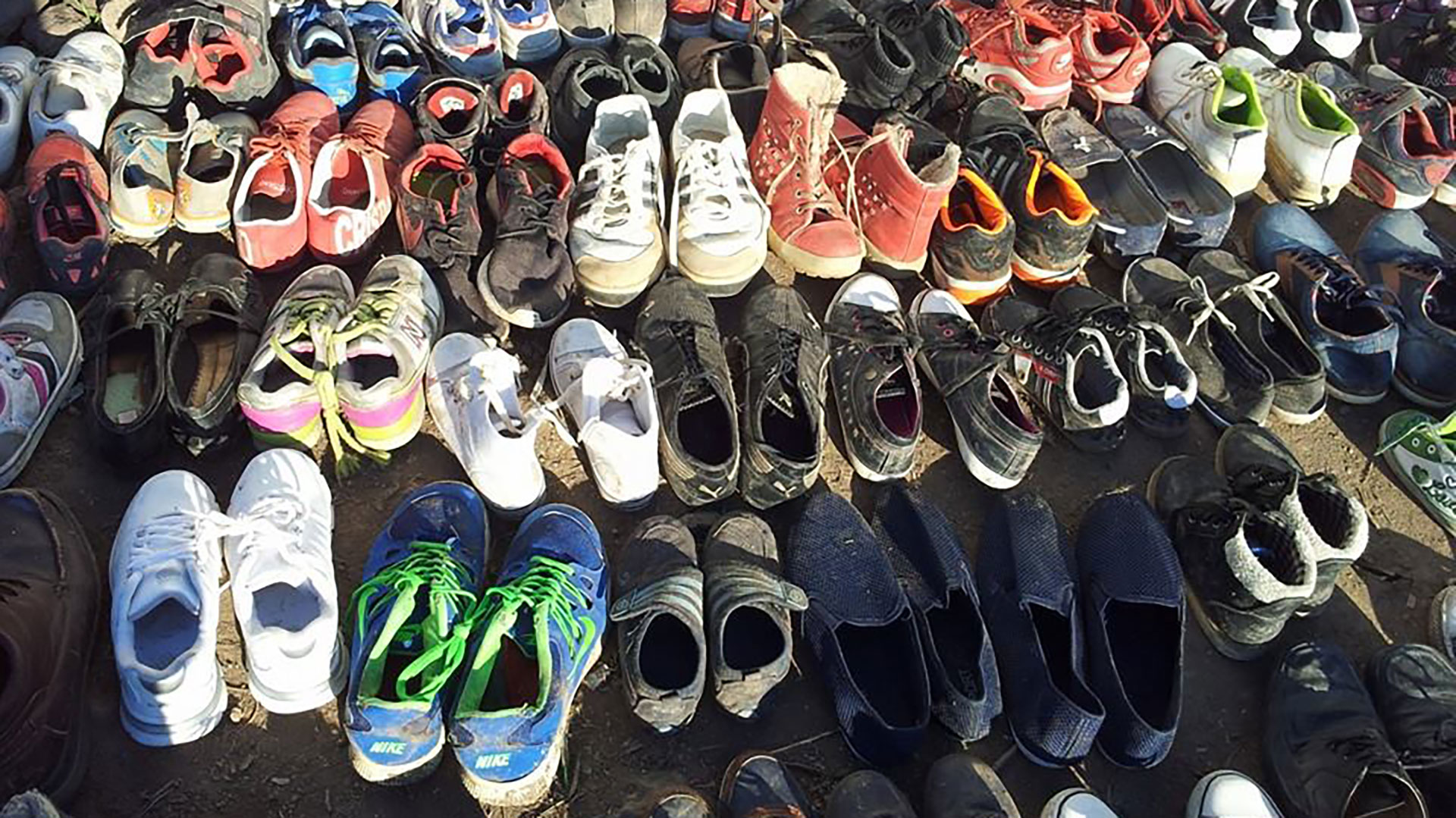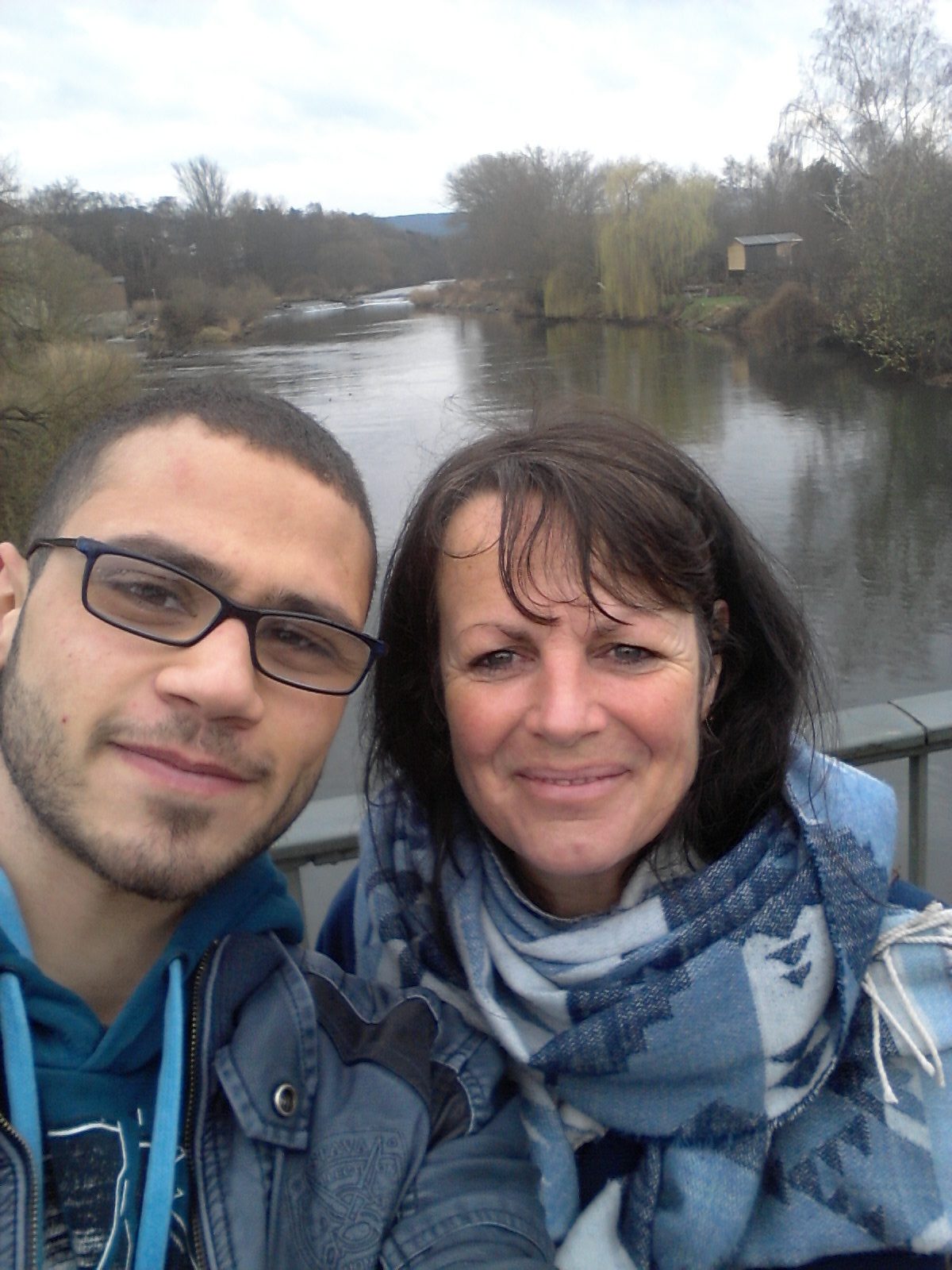Glenys Newton: In 2015 I was volunteering on Lesvos, welcoming boats that were arriving, one after the other, packed with refugees seeking safety. I am not a doctor or a lifeguard or a builder nor do I speak the many languages that would be useful, I only knew I could not stand by and do nothing. We offered sweet cups of chai, dry clothes, nappies to replace the sodden ones worn by the cold and wet little babies. We tended wounds, picked people out of the sea, sat with them as they wept and prayed on the ground. People forced to pay thousands to ride the ‘death boat,’ as it was called, while a passenger ferry ploughed the same path for just ten euros if you happen to be able to wave the right bit of paper, if you were born in the ‘right’ country. I had never been in a situation like that and it was overwhelming, but as people arrived many said that the first thing they saw on dry land was my smile, and that they would carry my smile in their heart on their journey across Europe as a reminder of the kindness that there is in the world.
Raafat: I kissed my little brother on the head for the last time. I said goodbye to my mum and set off towards the unknown. I had no other option than to leave the people and the country that I love so dearly. I could never imagine myself carrying a weapon and being told to kill. I had no choice. I didn’t know if I would arrive into the unknown or if I would drown in the seas. I had become just one of the numbers of people who would travel or die.

Glenys: I got obsessed with the shoes. Rows and rows of shoes, small, big, broken, fashionable, functional, every type of shoe and each and every one soaking wet. Every pair of shoes tells a story, and it felt as though it was one thing, in the entire uncontrollable madness of it all, that I could control. I would line them up into very wet, quite wet and dry. Babies, children, women and men’s shoes and then I would try and match them with the next boatload of people. It felt as though I was putting dead men’s shoes onto the next person but they had a long way yet to go, days of walking and I just wanted them to be comfortable. At least that. Each person had either got their feet wet getting into the boat or getting out of the boat or both and I knew that it would be a long time before they would be able to find another pair of shoes.
Raafat: We arrived in Bodrum at night and walked through some woods to a building on the beach. The building told the stories of thousands of travellers. I don’t know how many of those people became food for the fish. The sea has eaten so many people’s stories. The sea was stormy and the man was drunk, waving a gun around. I wasn’t afraid of the gun, I had already seen so many in my country but there were children going to get on that boat.
We can give clothes and we can give blankets but what we cannot give, and what people are running out of, is time
Glenys: People arrived with tales of being forced into the boat at gunpoint by smugglers. Men who had been separated from their wives and children spent hours, deep into the night, sitting on the beach waiting and waiting for their families to arrive; listening to the stillness of the sea for voices, watching for a glimpse of light from a mobile phone. They sat paralysed with the fear that their loved ones had been lost at sea. Nobody expects to have to prepare for this is in their life. Many had been in Turkey for years waiting for the war to finish, hoping to return to their homes. As their life savings dwindled and the years passed without their children having an education, they were forced to seek alternatives. Their children were running out of childhood. We can give clothes and we can give blankets but what we cannot give, and what people are running out of, is time. Most had never seen the sea before and the smugglers would appoint a person to drive the boat with just a few words of instructions before sending them out onto that seemingly short but endless stretch of water.
Raafat: The driver, one of the refugees, had been given brief instructions on how to drive the boat. We hadn’t gone far when the engine stopped. A few people managed to get it started again and we made our way through the darkness. There was a loud noise from the engine and then silence. The engine was really broken this time and everyone on the boat started screaming and crying. I thought about my mother who was crying when I left and asked me to promise that I would take care of my things. What she really meant was to take care of myself. There were 35 people in the boat. I sat with a Syrian family, a mother with two daughters and two sons. The youngest boy was called Adnan. His tears fell silently but I told him that I was an expert swimmer, a master of the seas and a friend to all of the dolphins who would rescue us if we fell in the sea. He knew that I was lying but he preferred the lies than the fear.









